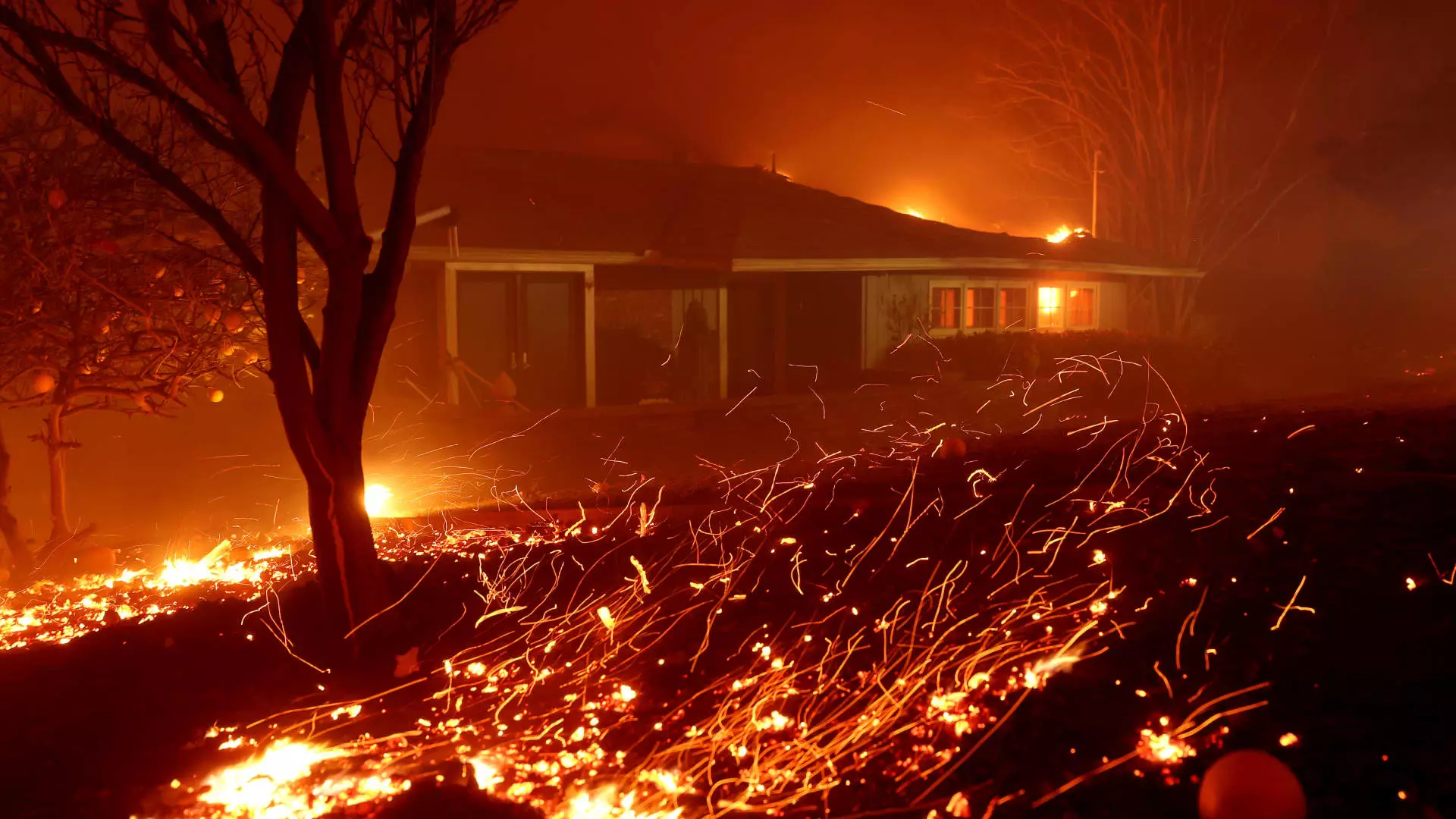As wildfires rage across Los Angeles and devastating weather events continue to emerge across the United States, the financial fallout from these disasters is beginning to reshape the very foundation of the real estate market. Although the full extent of the damages is still being assessed, consequences for insurance costs and housing values are becoming clear, suggesting a turbulent future for homeowners and investors alike. A recent analysis conducted by First Street, a climate-risk firm, underscores the alarming reality that climate change is not simply a theoretical concern but a measurable threat redefining property values across the nation.
According to First Street’s analysis, an astonishing 84% of all residential properties in the U.S. could experience a decline in value by 2055, aggregating potential losses of approximately $1.47 trillion. These staggering figures serve as a stark reminder that the growing impact of climate risks is increasingly influencing real estate markets. Jeremy Porter, the head of climate implications research at First Street, dissects the situation, emphasizing that climate change is fundamentally altering regional economies. The anticipated rise in insurance premiums—averaging 25% over the next three decades—will intensify financial strains on homeowners. Porter’s analysis illustrates how the ramifications of climate risk are becoming an operational reality rather than a remote concern.
Insurance costs will be impacted by two main vectors: the historical underpricing of risk and the escalating climate-related dangers. The report suggests that 14% of the anticipated insurance increase is attributable to past underestimations, while the remaining 11% is directly linked to the worsening climate crisis. The overall average decline in U.S. home values is projected to be around 3%, yet specific areas are anticipated to be hit hard. Counties in states such as Texas, Florida, and Louisiana may see property values plummet by as much as 50%, essentially reshaping the socio-economic landscape of these regions.
Dave Burt, the founder of DeltaTerra Capital, concurs with these projections, theorizing that within the next five years, 20% of U.S. homes will suffer some form of devaluation due to climate change. He articulates a sense of urgency, warning that the fragile state of the insurance system is crumbling under the pressure of increasing environmental volatility. Just as he predicted the collapse of the subprime mortgage market nearly two decades ago, Burt sees a comparable trend emerging in the context of climate risks.
Burt’s assertions highlight the interconnectedness between insurance and housing market dynamics. As insurance costs soar, the affordability of homeownership diminishes and, subsequently, property values will decline. The implications of this shift could be severe, with predictions suggesting that affected markets might witness a decrease in value of up to 30% over the next five years, reminiscent of the economic turmoil experienced during the Great Recession from 2007 to 2012. Prominent figures, including Senator Sheldon Whitehouse, have voiced their concerns about the increasing dangers linked to the insurance industry, stating that the fallout from disasters like the LA fires affects not only local markets but has ripple effects nationwide.
The impact of climate change extends beyond property values to the realm of foreclosures. Historical data reveals a concerning trend: after natural disasters, foreclosure rates surge. Following Hurricane Sandy in 2012, for instance, foreclosures in the affected areas skyrocketed by 46%. In light of these statistics, the implications for the mortgage market are significant. Fannie Mae, a key player in the mortgage sector, recognizes the urgency but has not yet fully integrated climate risk into their underwriting processes. The decisions made in mortgage markets will ultimately play a crucial role in dictating how these risks translate into economic realities for homeowners.
The confluence of rising insurance costs, declining property values, and increasing foreclosure rates presents a formidable challenge for the U.S. real estate market. As climate risks escalate and the insurance landscape shifts, it is essential for stakeholders—including homeowners, investors, and policymakers—to develop responsive strategies that account for these risks. Addressing the pressing need for climate resilience is not just a matter of prudent financial planning; it is imperative for safeguarding the future of American homes and communities. Without proactive intervention, the real estate market could face a formidable reckoning that amplifies the financial devastation wrought by climate change.

